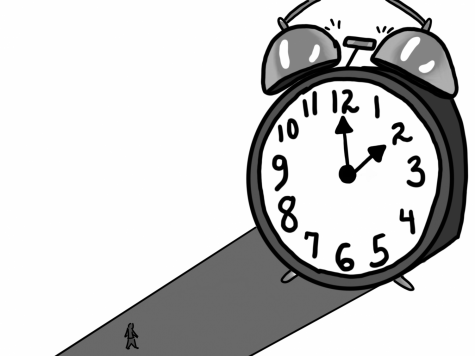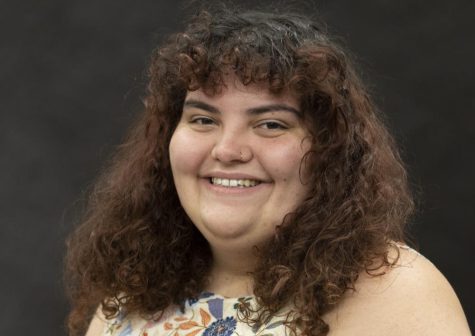Students share thoughts on daylight saving time
November 3, 2019
In 1966, the Uniform Time Act was signed into law, introducing structured daylight saving time to the country as a whole.
Two states in the U.S. do not participate in daylight saving time: Arizona and Hawaii.

Hawaii opted out when the Uniform Time Act was first introduced and Arizona stopped using daylight saving time in 1967 because of its unpopularity among Arizona residents.
American Samoa, Guam, Puerto Rico, the Virgin Islands and the Northern Mariana Islands also do not participate in the time change, along with some Amish communities
On Sunday, clocks were supposed to go back and give those in participating areas of the country an “extra hour” in their day.
Some students said they we happy to get an extra hour of sleep.
Elizabeth Serna-Sanchez, a freshman chemistry major, was one of those students.
“Depending on the time of the year, like when it first starts and time goes forward an hour, I think it sucks, but I think it’s nice when it’s in the fall because of the extra hour of sleep,” Serna-Sanchez said.
Ryan Alexander, a sophomore business major, said he enjoyed getting to sleep more.
“I got an extra hour of sleep for the day, so I’m cool with that,” Alexander said.
Some students forgot about the change until it happened.
Trevor Huffman, a freshman music major, said he only noticed the time change because he was awake when it happened.
“I didn’t know it was (daylight saving time) until last night because I was up late and I found out because I thought it was 2 a.m. but it was really 1 a.m., but I got an extra hour of sleep,” Huffman said.
Student opinions on daylight saving time vary with some seeing a value in it and others wishing it would stay the same year-round.
Serna-Sanchez said she had mixed feelings on the time change.
“I’m OK with it. I’m usually in my room the entire time doing homework anyway, so it’s not a huge problem (for me), but it is kind of inconvenient because when I’m trying to go somewhere at night it’s a lot darker,” Serna-Sanchez said.
Serna-Sanchez added that she did like having more sunlight during the day.
“It’s definitely something that’s nice to have so there’s more light during the day,” Serna-Sanchez said.
For the full story, visit www.dailyeasternnews.com.
Jaidyn Yarber, a freshman English major, said she was indifferent to daylight saving time.
“In general it just means I have to watch my clock and know when to change it,” Yarber said.
With daylight saving time here, the sun will also be going down sooner.
Yarber said with the amount of sunlight time getting shorter, she knows she will be more productive.
“I think when it’s darker it makes me want to get things done more because when it’s nighttime, I know I should really be on my stuff, so it makes me want to be more productive which stinks because I don’t like that,” Yarber said.
Huffman said he gets more done at night and is looking forward to darker days.
“I like the dark because it’s my time when I am my most active and where I can do a lot of stuff. That’s the way I think about it; I like it,” Huffman said.
Corryn Brock can be reached at 581-2812 or at cebrock@eiu.edu.




































































